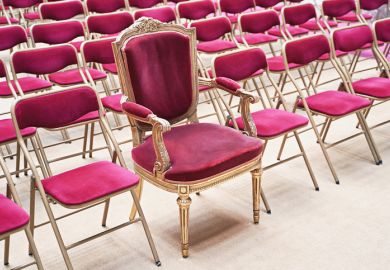A homeopathy researcher is facing investigation after she was filmed admitting “unethical behaviour” described by journal editors as “scientific misconduct” during a clinical trial to assess the effectiveness of alternative medicines.
Writing in the Journal of Psychosomatic Research, editor Jess Fiedorowicz and former editors James Levenson and Albert Leentjens urge authorities to censure Clare Relton, senior lecturer in clinical trials at Queen Mary University of London (QMUL), over her involvement in a triple-blind randomised placebo-controlled trial looking at the efficacy of homeopathic treatment for patients with chronic fatigue syndrome (CFS).
At the time of the University of Sheffield study, published in 2004, Dr Relton was working as a homeopath who had contact with some of the 103 participants given either a homeopathic remedy known as carcinosin or a dummy drug. Although the study found no statistically significant clinical improvements among those taking homeopathic treatments compared with those on a placebo, it led Dr Relton to complete a PhD on how clinical trials test homeopathy and she has since published widely on the issue.
At a homeopathy conference in June 2019, however, she told an audience that she realised there was “a cunning way of circumventing the blinding” of the trial, which ensured both participants and practitioners were unaware of who was receiving a placebo, by giving all her clients a dose of the drug in question.
In its new paper, the journal recounts how Dr Relton explained in the talk – which is available online – that she believed that if trial participants came back at the second appointment with no change in symptoms, “then we know they are on the placebo”.
Homeopaths should use their “amazing skills” such as “deep listening, deep understanding of what we know is toxic in our systems, about diet and counselling” and “don’t bother doing all that trying to find the right remedy”, she added.
On the issue of giving placebos to patients, she added: “We’re trained to treat people. I’m not trained to be deceiving people.”
That description of how participants were treated is “undisputable evidence of scientific misconduct”, and “unethical behaviour” which “warrants formal censure from the scientific community”, the journal claims.
“Not only did she deceive patients, but also the researchers and study leaders that she is supposed to collaborate with as a colleague,” the editors conclude.
In a statement, Dr Relton said that she was a “homeopath, not a researcher, when I took part in the trial” and “in this clinical capacity I tried to give the best treatment for each of the 10 CFS patients who I treated”. “This included an attempt towards the end of the trial to deduce whether or not my patient was on [the] placebo,” she added.
This attempt was based on her belief in the effectiveness of homeopathic medicine, a “desire to help the patients who consulted me for a condition for which there was very little being offered by traditional methods” and “frustration at [the] trial design”.
Despite the alleged ethical breaches, the journal decided not to retract the paper because it concluded the “rigorous scientific design provided evidence that the outcome of the study was not affected by the misconduct”.
A spokesman for QMUL said that it “maintains robust policies and procedures that ensure all our research is conducted to the highest standards of integrity” and was “looking into these allegations”.
Alan Henness, director of the Nightingale Collaboration, which challenges misleading healthcare claims and reported Dr Relton’s talk to the journal, told THE that the episode highlighted the problem of homeopathic research which, he said, was “mostly conducted by those already indoctrinated into the belief system of homeopathy”.




